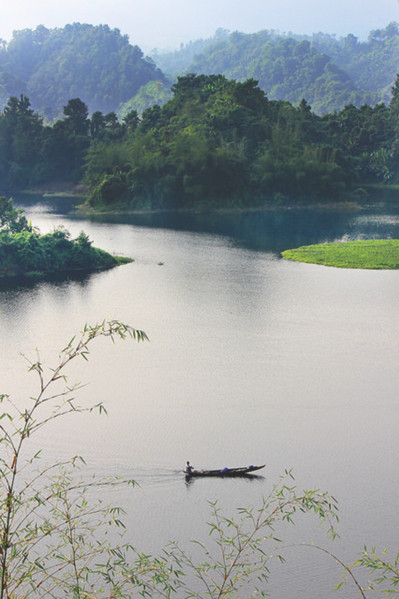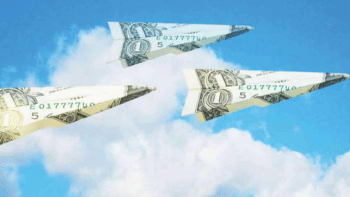A strange welcome

Last year Miles Khan went to Cox's Bazaar, wanting to spend a week in the beach town. He badly needed a break from his tedious, 9 to 5 job. But his holiday mood was spoiled as soon as he got off the bus. A group of brokers surrounded him, each trying to lure him to their hotel. The rates seemed too much to Miles, a freelance journalist. He decided to find a place himself. Half an hour later, after comparing rates of a few hotels, he checked into one that would charge him 1500 Taka a day.
The next morning when he went to take a shower, there was no running water. "A temporary crisis," the front desk said. The shift manager sent two buckets of water. Little did Miles know that his ordeal was far from being over.
The chicken tasted and smelt awful at lunch at a busy restaurant. He had to pay a hefty price for it, though. No one—either the customers or the waiters—seemed to be bothered by the swarm of flies sitting on the dining tables. By this time, Miles, the ever optimistic, was starting to feel a bit down.

After a short nap, shrugging off the bitter feeling, he headed to the beach. The plan was to find a beach chair, sit back, watch the sunset and forget about everything. "60 Taka an hour," said a boorish teenager who appeared from nowhere. Miles agreed. Just when he was about to be engulfed by the magnificence of the sun setting in on the waves, the boy reappeared. "Your time is up."
Miles tried to argue that it had only been half an hour. But he was adamant. "You have to pay now."

Long story short, Miles went straight to the hotel, checked out, bought a ticket back to Dhaka and boarded a night bus. He had had enough.
The troubles Miles went through are not unique to him. Nor was it a matter of bad luck. The pestering, the miserable quality of services at some hotels and restaurants and extended travel time continue to define most travelling experiences. "The number of destinations is limited," says Major (Retd) Sk Abu Mahadi, managing director of Golpata Eco Tours. "The demand increases enormously during the holidays. But the capacity to absorb this rush is low. Transportation, accommodation and recreational facilities are inadequate."
Despite all these constraints the number of domestic tourists has gone up significantly over the years, now estimated to be about eight million annually. During the long holidays of Eid al Azha alone at least one million people reportedly journeyed to various destinations around the country. Did they face similar inconveniences as Miles?
"Communication is the biggest issue," Abu Mahadi says. "For instance, you are visiting Kuakata and on your way back you would like to visit the floating market in Swarupkathi. But you cannot go there directly. You have to change transports. Tourists can visit St. Martin Island only between September and April. Small ships cannot go during the rainy season. There is no terminal in Nijhum Island. From Hatia one has to go by break journey."
Parjatan Corporation is the public agency responsible for implementation of tourism projects undertaken by the government. What are they up to? "We organise event tours like Modhumela, Lalon mela, Kite festival, Boat race, Folk song festivals, River cruise, Mango tours, Lichi tours, Archeological tours, Sunderbans tour and Paharpur Tour, " Aparup Chowdhury PhD, the Chairman (Additional Secretary to the Government) of Parjatan Corporation says. "Now we are taking it to the next level. We have started adventure tourism based on surfing, trekking, paragliding, trailing, campfire etc. We are also arranging pilgrimage tours."

The corporation has built hotels and motels across the country. Many guests, however, give them poor marks for their services. "We have automated the booking system," the chairman says. "We have many limitations. Our buildings are old and our furniture outdated. We have tried to refurbish by buying used furniture from Sonargaon and Ruposhi Bangla. But can that compete with the amenities provided by luxury hotels?"
Bangladesh Tourism Board, the other tourism-related arm of the government, is responsible for promotional activities, product identification and development, training, awareness building and branding. Taufiq Uddin Ahmed, president of TOAB (Tour Operators Association of Bangladesh) suggests that the Board should step up its activities. "Forget about the big things. Do they even have brochures for all the tourist destinations of Bangladesh?"
Everyone has their grievances. Akhtaruz Zaman Khan Kabir, CEO of Bangladesh Tourism Board says, "Year 2016 is almost over. We have not received the proposed budgetary allocation for promotional and other activities for the tourism year. On a regular basis, we publish materials on attractive destinations and themes. We also promote our activities on local TV channels and social media. Within this financial year we are going to campaign online and in international TV and print media. We are working to enhance accessibilities of women and physically and mentally challenged groups."
What if the tourists decide that the best way to dodge all these problems is to head elsewhere? In a way, they already are. During the Eid ul Azha an estimated 1-1.5 lakh people went abroad to spend their holiday. Major (Retd) Mahadi says. "Those with a budget exceeding 50,000 Taka prefer to go to countries such as Thailand, Malaysia and Nepal. Tour operators of these countries offer attractive package deals. We are losing out to them."

Why can't tour operators offer similar deals in this country? "We basically have no role to play," Abu Mahadi bemoans. "People like to plan their tours themselves. They do not want to pay extra. And why should they? What extra values can we offer? What kind of facilities are there for recreational activities? For example, there is only one safari park close to Cox's bazaar which is 28 kilometres away in Dulhazari. How many good restaurants, cafes and entertainment centres are there?"

Regulation remains inadequate. Taufiq Uddin Ahmed, president, of TOAB complains that hotels jack up their rates in the peak season making their job harder. "In many countries tour operators can buy duty-free or low-duty cars. We do not have that opportunity here."
All these are glaring issues. Then there is another aspect to mass tourism. What if tourists killed tourism in Bangladesh? "In many places including the Sunderbans, people go, cook, eat, and play music on loudspeakers and leave behind huge amount of garbage without the slightest care for environment or local communities," Sk Mahadi says. "Community-based tourism is the only way. The government has introduced Tourist Police. But there is no tourist law. People need to do holiday planning."
If tourism has to be sustainable, we have to be more responsible. "It is our constitutional duty to protect and conserve biodiversity," Aparup Chowdhury says.

The challenges are huge and are not going to go anywhere anytime soon. But it is unrealistic to try to solve all the problems from the centre. Are we to wait for the Ministry or Parjatan or Tourist Police to clear out the flies on the dining tables of Cox's Bazaar?

The writer is a member of the editorial team at The Daily Star.


 For all latest news, follow The Daily Star's Google News channel.
For all latest news, follow The Daily Star's Google News channel. 



Comments